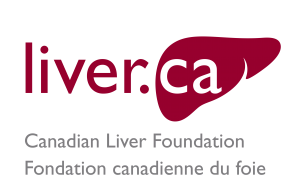Investigating A Treatment For Non-Alcoholic Fatty Liver Disease (NAFLD)

Investigating a treatment for non-alcoholic fatty liver disease (NAFLD)
In the human body, the liver converts the foods we eat like fat, sugar, and protein into energy that keeps us active and alert.
In the bodies of the 6 million Canadians who are classified as clinically obese (a BMI of 30 or higher) however, this “energy metabolism” system malfunctions and often leads to the development of several diseases like heart disease, type 2 diabetes and of course, non-alcoholic fatty liver disease (NAFLD), the most common liver disease in Canada.
Dr. John Ussher, a researcher at the University of Alberta and a 2018 CLF operating grant recipient, believes that a different approach to treating obese patients for multiple diseases related to the body’s metabolism could make a bigger impact.

“Understandably, medical professionals are often concerned that medication given to obese patients with type 2 diabetes can negatively impact the heart,” says Dr. Ussher. “We decided to flip this idea around and instead ask ‘what if medication for heart disease had the added benefit of improving blood sugar control (type 2 diabetes) and reducing obesity-related NAFLD? Would that be the ideal medication to prescribe to obese individuals at risk of NAFLD, type 2 diabetes and heart disease?’”
Using an already well-known heart disease drug called ranolazine, Dr. Ussher and his team are investigating whether this drug can combat the lengthy list of diseases that often coexist in the body of an obese individual.

Dr. Ussher’s passion revolves around fixing the malfunctioning metabolism of people with obesity; finding solutions, shrinking their risk of deadly complications, and overall restoring their quality of life.
He partially credits some of the most incredible discoveries we are fortunate to have found thus far to the likes of charitable foundations and their donors. Without them, he says, there would be significant barriers to improving the lives of people across the country living with liver disease.
“Research is essential to discoveries that lead to the development of new treatments for diseases like NAFLD,” says Dr. Ussher. “Donors from the Canadian Liver Foundation have given my team and me the support to run a lab and train high-quality staff able to address health problems and speed up our research process in ways that otherwise wouldn’t be possible.”

While Dr. Ussher’s work revolves around how we can treat obesity-related NAFLD after it has been developed, he is quick to endorse the prevention of liver disease from the start.
“Liver disease can often be silent and take years to manifest,” says Dr. Ussher. “The best way to ensure your liver health is maintained with age is to practice routine exercise and have a healthy, balanced and nutritious diet.”
Help reduce your risk of NAFLD by using our easy-to-follow tips on nutrition, exercise and lifestyle choices. If you would like to read more about our 2018 research grant recipients, check out our researchers’ webpage.


